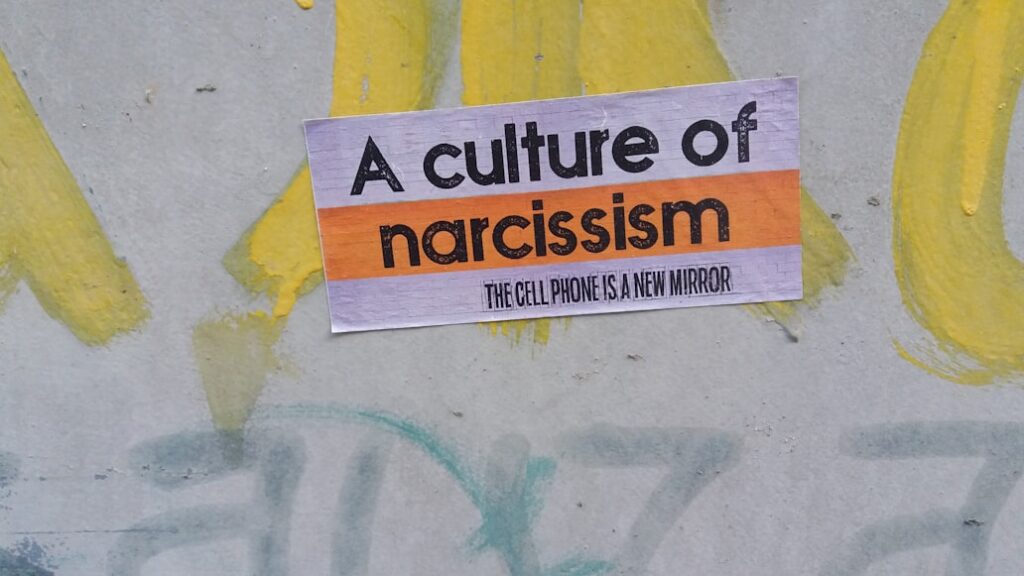You’re in the middle of telling a great story, getting to the good part, and then… someone jumps in.
They finish your sentence or change the subject entirely.
It’s frustrating, right? Feels rude. Makes you feel like you’re not being heard.
Naturally, you probably think, Why are they so disrespectful? But psychologists say there’s often more going on than just bad manners.
People who interrupt all the time aren’t necessarily trying to be jerks. They might be dealing with deeper, less obvious struggles.
Sometimes it’s about anxiety, impulse control, or even the way their brain is wired. Once you understand the psychology behind it, it can change how you see those interruptions.
Instead of getting frustrated, you might start to feel a little more empathy, and maybe even learn how to steer the conversation better.
So, let’s take a look at 10 possible reasons why some people just can’t stop interrupting.
Contents
- 1 10 Deeper Issues People Who Constantly Interrupt Others Struggle With
- 1.1 1. ADHD-Based Impulsivity
- 1.2 2. The Fear of Forgetting
- 1.3 3. Emotional Intensity or Excitement
- 1.4 4. Low Emotional Awareness (The “Blind Spot”)
- 1.5 5. Low Self-Esteem and Insecurity
- 1.6 6. Conversational Narcissism
- 1.7 7. A Need for Conversational Control
- 1.8 8. Learned Family “Survival” Scripts
- 1.9 9. Cultural or Social Style Mismatch
- 1.10 10. Poor Active Listening Skills
- 2 What You Can Do About It
- 3 Hey, Let Me Finish My Thoughts!
10 Deeper Issues People Who Constantly Interrupt Others Struggle With
Interrupting isn’t always about bad manners. Sometimes it’s about how the brain works, or habits picked up long ago. It’s usually a symptom, not the real problem underneath.
1. ADHD-Based Impulsivity

This is a big one. For people with ADHD, conversations can feel like a fast-moving race. Their brain is firing off ideas faster than their mouth can keep up, and waiting their turn can feel almost impossible.
It’s not that they want to interrupt or that they don’t care what you’re saying. Their internal “brake system” just doesn’t kick in the same way.
When a thought pops up, it feels urgent, like it has to come out right now before it slips away.
So the words just burst out. It’s not a conscious choice to cut someone off. It’s more like the brain’s impulse control is running on a delay.
2. The Fear of Forgetting

This one hits close to home for a lot of people, especially those with ADHD or similar challenges. Their working memory, the brain’s “sticky note” for holding short-term thoughts, doesn’t always stick as well as it should.
So when an idea pops into their head, it feels fragile, like it might float away any second. That’s why it suddenly feels urgent to say it out loud before it disappears.
They’re stuck with a tough choice: hold onto the thought and stop listening, or interrupt and get it out so they can focus again.
What seems like impatience or rudeness is often just someone trying not to lose their place in the conversation, or in their own mind.
Also Read: Scientists Say These Simple Habits Can Slow Brain Aging by Years — Maybe Even Decades
3. Emotional Intensity or Excitement

Not every interruption comes from impatience or ego. Sometimes, it’s pure enthusiasm spilling over.
Some people just get so excited about what you’re saying that they can’t hold it in. They want to jump in, connect, and keep the energy going.
For “high-intensity” talkers, this kind of overlap doesn’t feel rude at all. To them, it’s a way of saying, “I’m with you! I get it!” It’s their version of showing interest and engagement.
The problem is, that emotional rush can be hard to control. When someone feels a sudden spike of excitement or empathy, their social filter can short-circuit for a moment. They’re not trying to take over the conversation. Rather, they’re just caught up in the feeling of it.
4. Low Emotional Awareness (The “Blind Spot”)

Some people interrupt without even realizing it. It’s not that they don’t care. They just don’t notice. They have trouble reading the emotional cues in a conversation, both in themselves and in others.
They might miss the little signals: the pause in your voice, your shoulders dropping, that tiny sigh that says, “Please let me finish.” It’s like their radar for social feedback is turned down low.
Because of that blind spot, they often don’t see that their behavior comes off as rude or dismissive. And when someone calls them out, they might get defensive, not out of arrogance, but genuine confusion. In their mind, they didn’t do anything wrong.
5. Low Self-Esteem and Insecurity

People who interrupt a lot aren’t always trying to dominate the conversation. Sometimes, they’re just afraid of disappearing from it.
For someone struggling with low self-esteem, silence can feel like invisibility. They worry that if they don’t speak up right away, no one will notice them or care what they have to say. That fear of being overlooked can hit hard, almost like rejection.
So they jump in. They add comments, finish sentences, and crack jokes, all in an effort to prove they belong. It’s not about ego; it’s about trying to feel seen, valued, and worthy of a voice at the table.
6. Conversational Narcissism

This is kind of the flip side of insecurity, though it often comes from the same shaky foundation, an unstable sense of self.
A conversational narcissist needs attention the way some people need oxygen. They love being the center of things, and they genuinely believe their stories or opinions are more interesting than anyone else’s.
You mention your vacation, and before you’re even done, they’re off telling you about their trip. It’s not really a back-and-forth, but a one-person show with a rotating audience.
They’re not truly listening. They’re waiting for their turn to take the mic. Interrupting, for them, is a way to stay in control of the conversation and keep the spotlight on themselves.
7. A Need for Conversational Control

Some people interrupt not because they want attention, but because they want control. They see conversation less as a shared moment and more as a task that needs to be completed.
These are the “get to the point” types. Long stories make them restless. They cut in to steer things in the direction they want: faster, more focused, more efficient.
The problem is, when someone treats a conversation like a meeting agenda, it stops feeling like a connection. The other person ends up feeling small or dismissed, like their words don’t really matter.
The interrupter may think they’re being practical, but what they’re really doing is running the conversation on their own terms.
8. Learned Family “Survival” Scripts

Some people interrupt because that’s just how they learned to talk.
Think about a big, loud family dinner where everyone is talking at once. If you waited politely for your turn, you’d never get a word in.
In that kind of environment, interrupting isn’t rude. It’s how you participate, how you show you belong. It’s a survival skill from their earliest social group.
The tricky part is, that habit sticks. What worked at home can feel pushy or disrespectful in other settings, like at work or on a quiet date. The same instinct that helped them be heard as a kid can backfire in adult conversations.
9. Cultural or Social Style Mismatch

Sometimes what feels like an interruption is really just a difference in conversational style. Not everyone experiences pauses and overlaps the same way.
Some people, called high-intensity speakers, are uncomfortable with silence. They see jumping in or talking over someone as a way to show they’re engaged and friendly.
Others, low-intensity speakers, prefer one person talking at a time. To them, overlapping speech feels rude or dismissive.
So a “friendly” jump-in from a high-intensity speaker can feel like an interruption to a low-intensity listener. It’s just a mismatch in how people experience conversation.
10. Poor Active Listening Skills

Finally, some people interrupt simply because they haven’t learned how to listen. They weren’t taught the art of paying full attention to someone else’s words.
They’re not listening to understand. They’re listening to reply. While you’re talking, their mind is already crafting what they want to say next, waiting for the perfect moment to jump in.
This isn’t always about a deep psychological issue. Sometimes it’s just a lack of training or practice. They don’t know how to be a good conversational partner, and it shows.
What You Can Do About It
Understanding why interruptions happen is the first step. The next is action.
Whether you’re the one interrupting or the one getting interrupted, some strategies can help.

How to Stop Interrupting Others (If It’s You)
Realizing you interrupt a lot can be a bit of a shock. The good news is it’s something you can change. It takes practice, patience, and a bit of self-awareness.
- Write It Down
If you fear forgetting your thought, jot it down. Use a small notepad or your phone. Just a few keywords can “save” the idea and let your brain relax so you can actually listen.
- Practice the Mindful Pause
Your first instinct is to speak immediately. Train yourself to pause. Take a deep breath. Count to three. That tiny gap is often all you need to let the impulse pass.
- Be Interested, Not Interesting
Shift your goal in conversation. Instead of trying to impress, focus on genuinely understanding the other person. Ask questions, follow up, and stay curious. This naturally puts you in listening mode.
- Apologize and Pivot
You will slip up. When you do, stop mid-sentence, apologize, and return the focus to the other person. Something as simple as, “Sorry, I interrupted. Please finish what you were saying,” can reset the conversation.
These steps are a solid start. For some, professional help like coaching or therapy can make a big difference in breaking long-standing habits.
What to Do When Someone Constantly Interrupts You
You actually have options here. You can assert yourself without getting aggressive. Think of it like climbing a ladder, starting with subtle moves and escalating if needed.
Level 1: The Non-Verbal Cue
When they interrupt, keep talking but add a small hand raise or a gentle pause. It’s a universal “hold on” gesture: polite, but clear. Often, that’s all it takes.
Level 2: Keep Talking
If subtle cues don’t work, don’t give up the floor. Keep your pace and tone steady as if the interruption didn’t happen. It might feel a little awkward, but it shows you won’t be bulldozed in the conversation.
Level 3: The Direct Statement
When interruptions continue, speak up calmly. Using their name helps get attention:
“Hold on a second, let me finish my point.”
“Bob, I’d like to finish my thought.”
“Jane, I can’t hear you when you interrupt me.”
These statements are firm without being confrontational.
Level 4: The Private Chat
If the pattern persists, address it later in private. Use “I” statements to keep it constructive:
“I feel unheard when I’m interrupted in meetings. I know you have great ideas, but I’d like a chance to finish my thought.”
This approach helps protect your space, maintain respect, and keep the conversation healthy.
Also See: Psychology Expert: The 5 Golden Rules That Let You Be Truly Happy Without Money
Hey, Let Me Finish My Thoughts!
Think of conversation like a dance. Both people need to move together.
Understanding why people interrupt helps us see the struggle behind the behavior. They’re not always being rude or selfish.
Sometimes their brain is impulsive. Sometimes they’re wrestling with insecurity.
Or maybe their communication style just doesn’t match yours.
Knowing this gives us empathy. And empathy is the first step toward smoother, more respectful conversations.